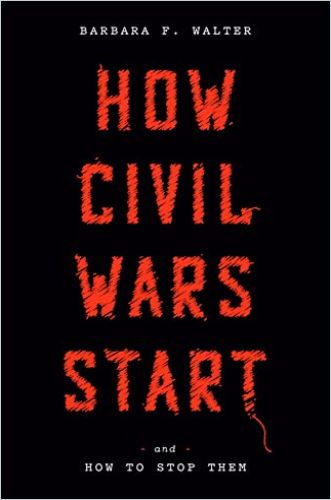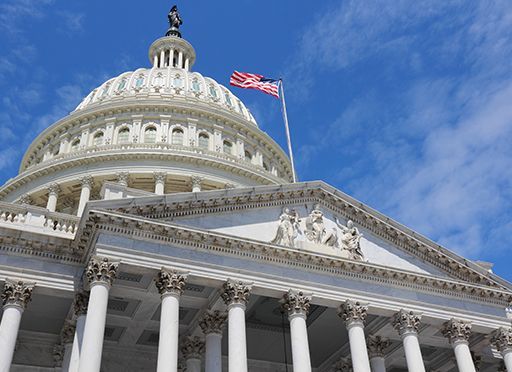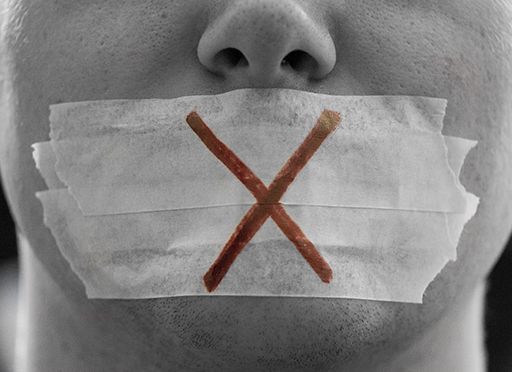Professor of international relations Barbara F. Walter details how democracies and autocracies can dissolve into civil war.

Violence in the Streets
Barbara F. Walter – professor of international relations at the University of California, San Diego – considers the common threads linking a century’s worth of civil wars in places as disparate as Spain, Syria and Bosnia, among others. She finds that America’s democracy is precariously close to collapse.
Between Autocracy and Democracy
Whether in Iraq, Syria or Northern Ireland, conflicts occur in societies with weakened and undermined democratic institutions, and in which out-of-power groups experience oppression and hopelessness.
The January 6, 2021, invasion of the US Capitol is one sign of an impaired American democracy. In 2020, a militia hatched a plot to kidnap and murder the Democratic governor of Michigan, Gretchen Whitmer. The FBI thwarted the scheme, and American democracy survived the January 6 insurrection.
Americans are no longer surprised to see armed men at rallies and paramilitary groups converging at protests.Barbara F. Walter
Civil wars often occur in nations that are neither fully democratic nor autocratic. During the past century, civil wars commonly erupted in nations transitioning toward democracy. Spain, for example, became a democracy in 1931, but it devolved into civil war after a military coup. Rwanda’s bloody civil war followed a move toward democracy. Efforts to democratize formerly autocratic societies sparked conflicts in Iraq, Libya, Syria and Yemen.
The Polity Score measures nations by their degree of popular governance. Accordingly, Norway, New Zealand, Denmark and Canada are the most robust democracies; North Korea, Saudi Arabia and Bahrain are the strongest autocracies. Hungary, Turkey and Zimbabwe tasted democracy, shifted toward autocracy and are at risk of civil war.
Ethnic and Religious Rivalries
Factionalism portends civil war in nations with rigid boundaries between ethnic and religious groups, or in countries in which winning and losing political power carry high stakes. Democracies lacking factional extremism, like Switzerland, Germany, Australia and Canada, easily shift power from elected regime to elected regime.
Autocracies don’t tolerate competition. If Slobodan Milošević had attempted to launch a Serb nationalist party under Yugoslavia’s autocracy, the ruling party would have crushed it. The 1980 death of the longtime Yugoslav ruler Josip Tito created a power vacuum that spawned factionalism. During the 1980s, the formerly united citizens of Yugoslavia divided along religious and linguistic lines.
Identity-based parties make it impossible for voters to switch sides; there is nowhere for them to go if their political identity is tied to their ethnic or religious identity.Barbara F. Walter
Identity politics becomes especially toxic in nations characterized by “superfactions”: ruling groups united by ethnicity, religion, class or geography. These groups concentrate power, deliver spoils to in-group members and exclude out-of-power groups. Sri Lanka, for example, experienced this divide when its Tamil and Sinhalese factions split along ethnic, religious and geographic lines.
Violence erupts only when a malevolent leader spurs simmering hatred into action. These “ethnic entrepreneurs” tap into popular resentment and fear, as did Yugoslavia’s Milošević and Rwanda’s Hutu leader Léon Mugesera.
Northern Ireland’s civil war began in 1972, after centuries of British oppression of Catholics there. In the 17th century, the Crown urged Scottish Protestants to settle in Northern Ireland. The Protestants seized Catholic-owned land and, by 1690, had become the majority. In 1922, much of Ireland gained independence, but Northern Ireland remained under British control.
Tensions boiled over in the summer of 1969, and London sent troops to quell protests. Northern Ireland’s Catholics at first welcomed them, assuming that the soldiers would protect them from Protestant provocations, but the troops’ heavy-handed tactics outraged Catholics. British forces opened fire on unarmed Catholic civilians in the 1972 Bloody Sunday massacre that claimed 14 lives. Oppressed groups can endure centuries without lashing out, but when an event like Bloody Sunday extinguishes their hopes, civil war looms.
Social Media
Democracy is in retreat, civil conflict is at historical highs and social media dominates global communications. Facebook, Twitter, YouTube, WhatsApp and Instagram hold sway: More than 70% of Americans get their news from social media. These platforms spread misinformation and disinformation. Legacy media locked out conspiracy theorists and demagogues, who can still easily reach large audiences through social media.
Open, unregulated social media platforms turned out to be the perfect accelerant for the conditions that lead to civil war.Barbara F. Walter
Humans prefer apocalyptic messages to calming ideas. Social media algorithms seem tailor-made to foment civil war. Facebook, YouTube and the rest reward engagement by incentivizing extremism and fearmongering.
Better Governance
Nations must restrain presidential power, encourage judicial independence and broaden political participation. Rich nations with autocratic tendencies prove more susceptible to civil war than democracies with weak economies. The United States needs a more independent and robust system of election management. The Electoral Integrity Project judges that America’s electoral laws and processes are on a par with those of Mexico and Panama, and far below those of Costa Rica, Uruguay and Chile.
Americans must be educated about the key levers of power in our democracy and the ways in which they can be manipulated.Barbara F. Walter
America must fortify the Voting Rights Act and accept automatic voter registration (AVR). AVR registers everyone who interacts with a state Department of Motor Vehicles. America should eliminate gerrymandering – the practice of establishing Congressional districts that one party dominates. This supports the election of extreme candidates, reduces bipartisanship and weakens democracy. The United States also should abolish the Electoral College, which grants outsized influence to white voters in rural states.
On the Precipice
Professor Walter paints, as she intends, an alarming portrait of nations on the precipice, including the United States. While always politically neutral, getAbstract believes that readers from any point on the political spectrum will find her insights fascinating, objective and illuminating. Professor Walter offers a comprehensive list of pre-civil war symptoms and conditions, and she details the cirumstances that trigger those symptoms into full-blown warfare. She is articulate, erudite and straightforward. The extent of Professor Walter’s concern for US democracy reflects the depth of her research and her recognition of the prewar conditions prevalent in America.







